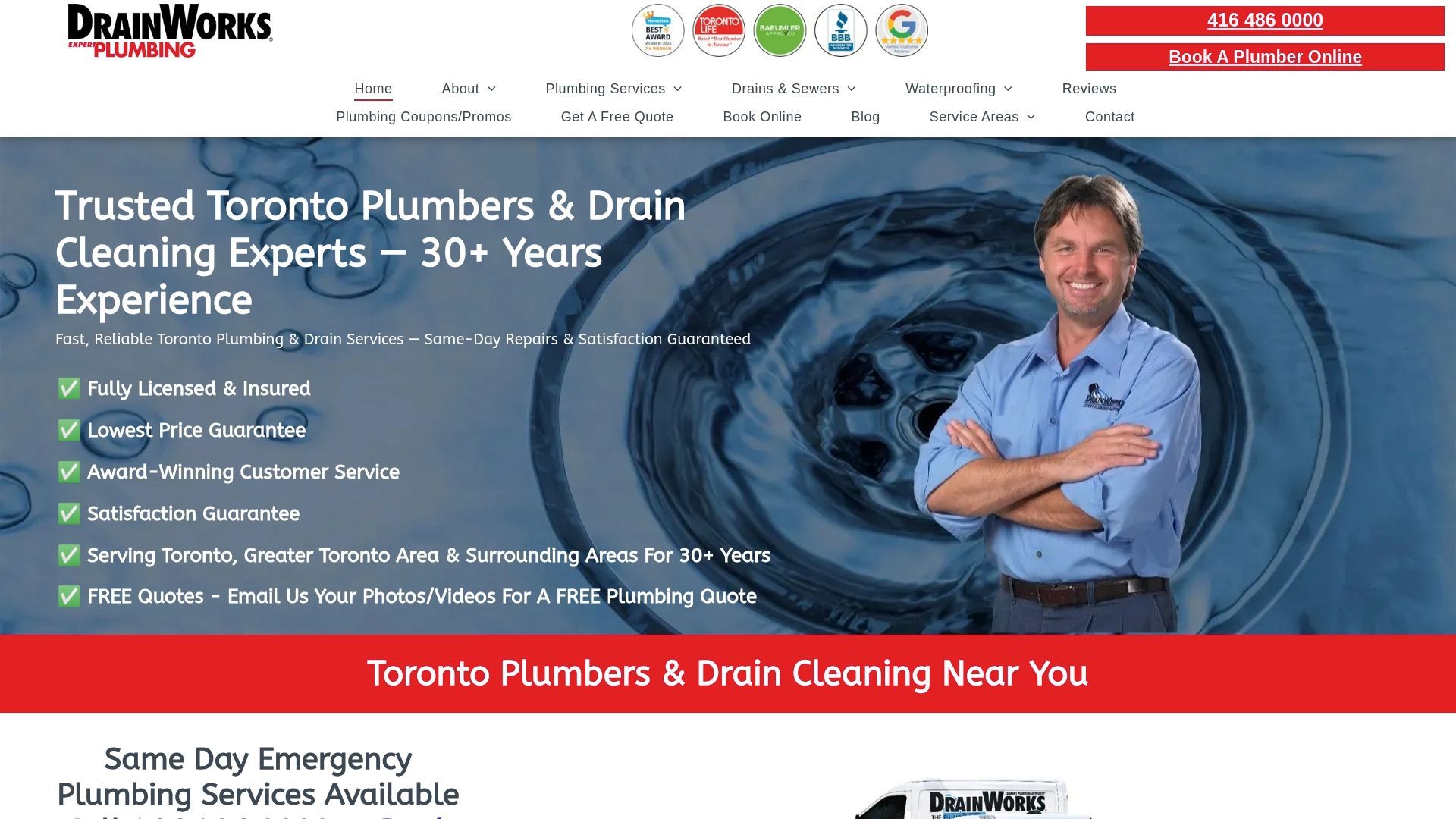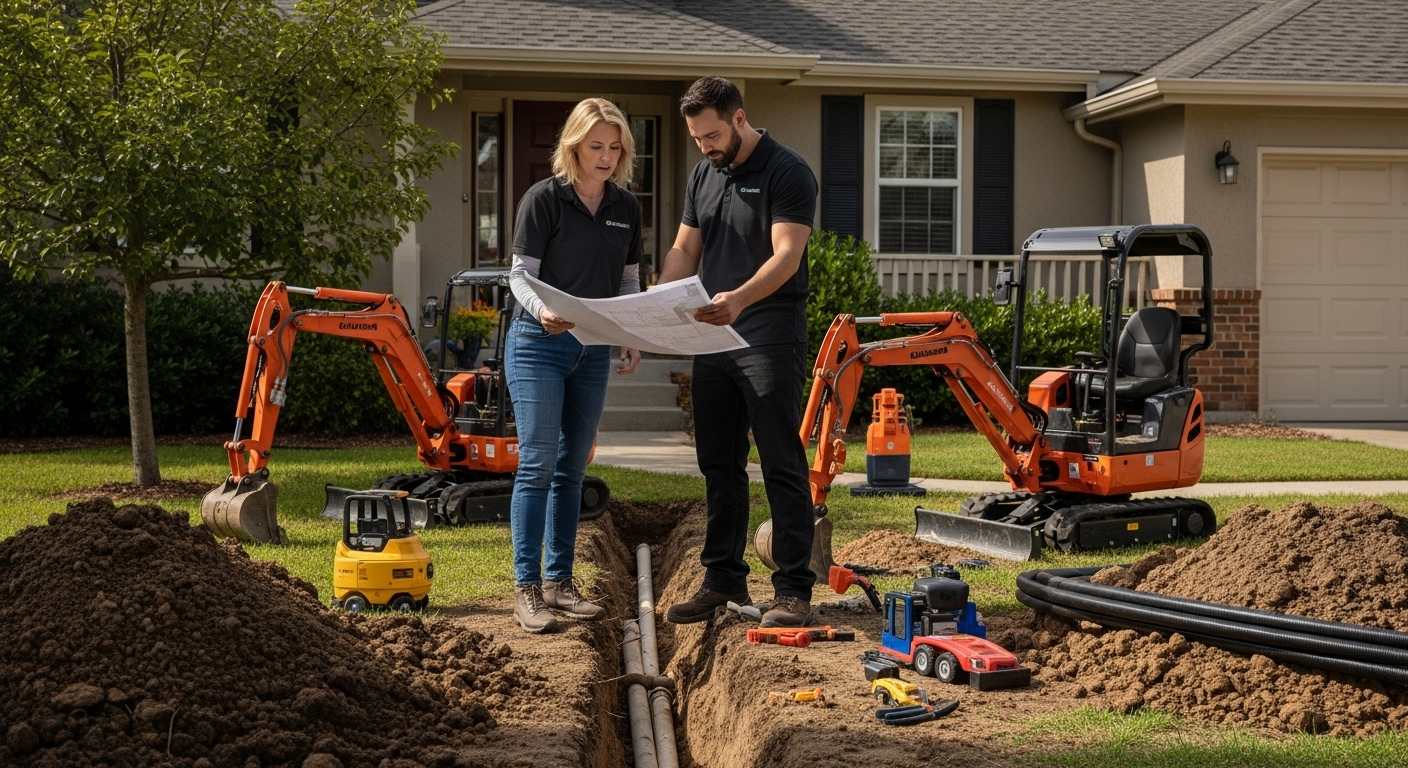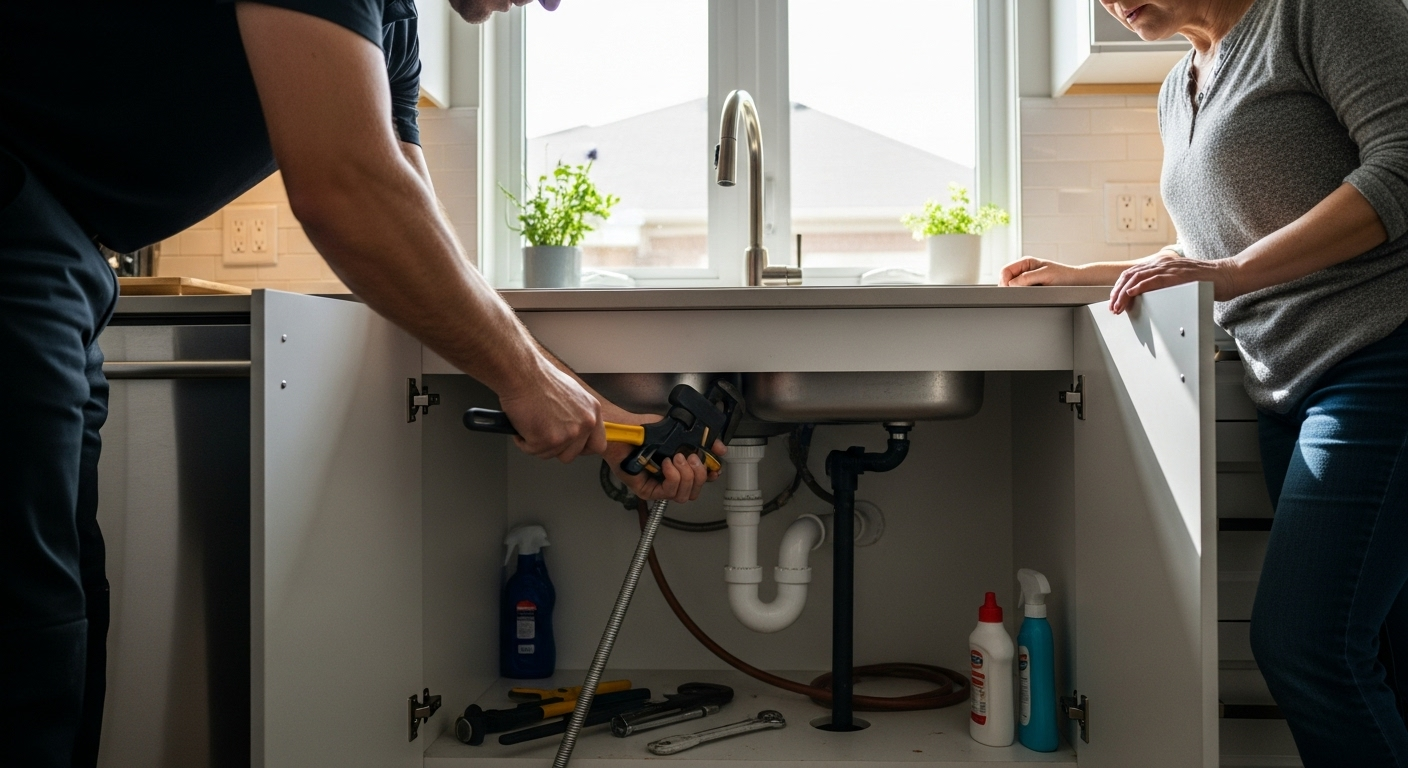8 Essential Toronto Community Resources for Homeowners

Toronto is filled with resources that most homeowners never tap into. Some overlook the fact that there are over 100 community centres and public library branches scattered across the city, each packed with valuable programs and support. Yet while everyone talks about the buzz of downtown, the most powerful tools for Toronto homeowners are quietly waiting right in their own neighbourhoods. From exclusive workshops and digital platforms to insider networks, the real advantage comes from knowing where to look.
Table of Contents
- Understanding Local Community Centers
- Accessing Public Libraries For Homeowner Resources
- Finding Neighborhood Support Groups And Organizations
- Utilizing City Hall Services And Resources
- Connecting With Local Non-Profits For Assistance
- Exploring Online Community Platforms
- Learning About Housing And Environmental Programs
- Networking With Local Building And Renovation Experts
Quick Summary
| Takeaway | Explanation |
|---|---|
| Utilize Local Community Centres | Community centres provide accessible resources for recreation and social connection. Join programs to engage with your neighbours and stay informed about local issues. |
| Access Library Resources for Homeownership | Public libraries offer guides and workshops supporting homeowners. Leverage free access to information on home maintenance and financial planning. |
| Engage with Neighborhood Support Groups | Local organizations foster community resilience. Participate in groups focused on safety, environmental action, and collaborative problem-solving. |
| Connect with City Hall Services | City Hall offers essential services such as property tax relief and home improvement programs. Make use of these resources for effective home management. |
| Network with Renovation Experts | Build connections with local professionals for property improvement guidance. Attend workshops and join trade associations to access specialized knowledge. |
1: Understanding Local Community Centers
Local community centres represent the heartbeat of Toronto’s neighbourhoods, offering vital resources and connection points for homeowners across the city. These multipurpose facilities are designed to serve diverse community needs, providing spaces where residents can engage in recreational activities, access important services, and build meaningful relationships with their neighbours.
Toronto’s community centres are strategically distributed throughout different neighbourhoods, ensuring accessibility for residents. Each centre offers a unique blend of programs and services tailored to the specific demographic and cultural composition of its local area. From fitness classes and youth programs to senior social groups and skill development workshops, these centres create inclusive environments that support residents of all ages and backgrounds.
Key features of Toronto community centres include:
- Affordable recreational programs
- Multipurpose meeting spaces
- Free or low-cost fitness classes
- Community event hosting
- Educational workshops
- Social connection opportunities
For homeowners, these community centres provide more than just recreational opportunities. They serve as critical information hubs where residents can learn about local resources, city services, community development initiatives, and neighbourhood support programs. By participating in community centre activities, homeowners can stay informed about local issues, contribute to neighbourhood improvements, and develop a stronger sense of community belonging.
The City of Toronto continuously invests in maintaining and upgrading these community centres, ensuring they remain modern, welcoming, and responsive to evolving community needs. Recent enhancements have included improved accessibility features, technology upgrades, and expanded program offerings that reflect the city’s commitment to creating vibrant, connected neighbourhoods.
2: Accessing Public Libraries for Homeowner Resources
Public libraries in Toronto represent far more than traditional book repositories; they are comprehensive knowledge centers that offer extensive resources for homeowners seeking practical information and community support. These institutions provide an incredible range of services designed to help residents navigate homeownership challenges, access critical information, and develop practical skills.
The Toronto Public Library system boasts an impressive network of branches across the city, each equipped with specialized resources tailored to help homeowners make informed decisions. From digital databases and online platforms to physical reference materials, libraries offer an array of tools that can support property maintenance, home improvement, and community engagement strategies.
Key resources available for homeowners include:
- Free access to home repair guides and manuals
- Online databases with property management information
- Digital workshops and webinars
- Local housing market research materials
- Consumer information and financial planning resources
Beyond traditional print materials, modern Toronto libraries provide digital platforms that enable homeowners to access resources remotely. These digital collections include e-books, research databases, and online learning platforms covering topics like home maintenance, renovation strategies, energy efficiency, and property management.
Additionally, many library branches offer free workshops and community programs specifically designed for homeowners. These sessions cover diverse topics such as home maintenance techniques, understanding property taxes, navigating municipal bylaws, and connecting with local home improvement experts. By leveraging these library resources, Toronto homeowners can enhance their knowledge, make informed decisions, and effectively manage their most significant investment.
3: Finding Neighborhood Support Groups and Organizations
Neighborhood support groups and organizations play a critical role in connecting Toronto homeowners and creating strong, resilient community networks. These grassroots initiatives provide invaluable platforms for residents to share resources, address local challenges, and build meaningful relationships within their immediate community environment.
Toronto offers a diverse landscape of neighborhood support groups that cater to various interests and needs. Community-driven organizations emerge from local initiatives, focusing on topics ranging from home maintenance and property improvements to environmental sustainability and community safety. These groups create opportunities for homeowners to exchange knowledge, collaborate on local projects, and develop collective solutions to neighborhood challenges.
Important types of neighborhood support groups include:
- Resident association networks
- Community improvement committees
- Environmental action groups
- Localized safety and crime prevention teams
- Neighborhood revitalization initiatives
The City of Toronto actively supports these community-based organizations through strategic programs and resources. Community Development Officers work directly with residents to facilitate engagement, provide guidance, and help establish structured support networks. These professionals help transform grassroots ideas into actionable community improvement strategies.
Technology has further enhanced neighborhood connection opportunities. Online platforms and social media groups now enable homeowners to connect beyond traditional geographical boundaries, sharing information, organizing local events, and creating digital support networks. Websites, community forums, and neighborhood-specific social media groups have become powerful tools for building collaborative relationships and addressing shared community interests.
4: Utilizing City Hall Services and Resources
City Hall serves as a comprehensive resource center for Toronto homeowners, offering an extensive range of services designed to support property management, community development, and residential well-being. Municipal resources provide critical support for navigating complex homeownership challenges, from regulatory guidance to financial assistance programs.
Toronto’s municipal services extend far beyond traditional administrative functions. Homeowners can access a wide array of practical resources that help them make informed decisions about property maintenance, community engagement, and local infrastructure development. These services are specifically designed to empower residents and enhance the overall quality of urban living.
Key municipal services available to homeowners include:
- Property tax assessment and relief programs
- Home renovation and energy efficiency consultations
- Building permit and zoning information
- Waste management and recycling guidance
- Urban planning and community development resources
The city’s online platforms have significantly transformed how homeowners interact with municipal services. Digital resources now enable residents to access information, submit applications, and resolve queries with unprecedented convenience. Online portals provide transparent, user-friendly interfaces that streamline communication between homeowners and city departments.
Moreover, City Hall offers specialized programs targeting specific homeowner needs. Energy efficiency initiatives, property tax rebate programs, and home improvement consultations demonstrate the municipality’s commitment to supporting residents. These targeted services not only provide practical assistance but also contribute to broader community development goals, helping homeowners maintain and improve their properties while supporting sustainable urban growth.
5: Connecting with Local Non-Profits for Assistance
Local non-profit organizations play a crucial role in supporting Toronto homeowners by providing targeted assistance, resources, and community-driven solutions. Community-based non-profits offer specialized services that address unique housing challenges, filling critical gaps in municipal and government support systems.
These organizations develop comprehensive programs designed to help homeowners navigate complex financial, maintenance, and social challenges. By focusing on localized needs, non-profits create flexible, responsive support networks that mainstream services often cannot provide. Their approach emphasizes personalized assistance, understanding that each homeowner’s situation requires unique considerations.
Significant areas of non-profit support include:
- Housing affordability programs
- Home repair and maintenance assistance
- Financial counseling and planning
- Energy efficiency interventions
- Emergency housing support services
Toronto’s non-profit landscape represents a diverse ecosystem of organizations dedicated to empowering homeowners. Strategic partnerships between municipal governments, community groups, and non-profit agencies ensure that residents have access to comprehensive support mechanisms. These collaborations enable more effective resource allocation, helping homeowners address challenges related to property maintenance, financial planning, and community integration.
Many non-profit organizations also offer free workshops, information sessions, and consultation services. These educational initiatives help homeowners develop practical skills, understand their rights, and make informed decisions about property management. By connecting with local non-profits, Toronto homeowners can access a wealth of knowledge, financial support, and community resources that enhance their residential experience and contribute to neighborhood resilience.
6: Exploring Online Community Platforms
Online community platforms have revolutionized how Toronto homeowners connect, share information, and support one another. Digital networks provide unprecedented opportunities for residents to engage with their local community, access resources, and participate in collaborative problem-solving initiatives.
These virtual spaces transcend traditional geographic limitations, creating interconnected networks that enable homeowners to share experiences, seek advice, and develop meaningful connections. From neighborhood-specific forums to citywide digital platforms, these online communities offer a dynamic environment for information exchange and mutual support.
Key advantages of online community platforms include:
- Real-time communication and resource sharing
- Access to localized neighborhood information
- Crowdsourced home maintenance advice
- Emergency and safety communication networks
- Cost-effective community engagement tools
Toronto’s digital landscape features a diverse range of platforms tailored to different community needs. Municipal online resources complement these community-driven networks, providing official information, virtual consultation opportunities, and digital engagement channels. Homeowners can now participate in public consultations, access city services, and stay informed about local developments through user-friendly online interfaces.
Moreover, these platforms serve more than just informational purposes. They foster a sense of community connection, enabling residents to build support networks, organize local initiatives, and collectively address neighbourhood challenges. By leveraging digital technologies, Toronto homeowners can create more resilient, informed, and interconnected communities that extend far beyond traditional physical boundaries.
7: Learning About Housing and Environmental Programs
Toronto’s housing and environmental programs represent a comprehensive approach to supporting homeowners in creating sustainable, efficient, and resilient living spaces. Municipal initiatives provide targeted resources that help residents reduce environmental impact, improve home performance, and manage long-term property maintenance challenges.
These programs go beyond traditional support mechanisms, offering holistic solutions that address energy efficiency, climate resilience, and financial sustainability. By combining technical expertise with practical incentives, the city empowers homeowners to make informed decisions about their property investments and environmental responsibilities.
Significant housing and environmental program offerings include:
- Energy efficiency retrofit subsidies
- Home weatherization assistance
- Stormwater management support
- Green roof incentive programs
- Basement flooding protection initiatives
Financial incentives play a crucial role in these environmental programs. Homeowners can access low-interest loans, direct subsidies, and tax rebates designed to offset the initial costs of sustainable home improvements. These financial tools make critical upgrades more accessible, encouraging widespread adoption of energy-efficient technologies and environmentally responsible home maintenance practices.
Moreover, these programs provide comprehensive support through professional assessments, personalized recommendations, and ongoing educational resources. Registered energy advisors help homeowners understand their property’s specific performance characteristics, offering tailored strategies for reducing energy consumption, managing environmental risks, and creating more comfortable, sustainable living environments. By participating in these initiatives, Toronto homeowners can simultaneously improve their property values and contribute to broader urban sustainability goals.
8: Networking with Local Building and Renovation Experts
Networking with local building and renovation experts is crucial for Toronto homeowners seeking professional guidance and reliable support for their property improvement projects. Professional networks provide invaluable insights, helping residents make informed decisions about home maintenance, renovations, and long-term property investments.
These expert connections offer more than just technical advice. They create opportunities for homeowners to understand complex renovation processes, learn about emerging technologies, and develop strategic approaches to property management. By building relationships with local professionals, residents can access specialized knowledge that extends far beyond traditional consultation services.
Key strategies for connecting with renovation experts include:
- Attending local home improvement workshops
- Participating in professional trade associations
Professional organizations and industry events serve as critical platforms for knowledge exchange. Local expertise becomes accessible through structured networking opportunities, allowing homeowners to interact directly with experienced contractors, architects, and specialized service providers. Learn why plumbing should be your first renovation consideration before embarking on any significant home improvement project.
Moreover, these professional networks help homeowners navigate complex regulatory requirements, understand local building codes, and identify reliable service providers. By cultivating relationships with building and renovation experts, Toronto residents can develop a comprehensive support system that enhances their ability to maintain, improve, and protect their most significant personal investment their home.
Below is a comprehensive table summarizing the eight key Toronto community resources for homeowners discussed throughout the article, including their main features and primary benefits for residents.
| Resource or Service | Main Features & Examples | Benefits to Homeowners |
|---|---|---|
| Local Community Centres | Recreational programs, meeting spaces, workshops, local events | Community connection, accessible recreation, access to city information and support |
| Public Libraries | Home repair guides, digital resources, homeowner workshops, research tools | Free learning, homeownership guidance, property knowledge, remote access |
| Neighbourhood Support Groups | Resident associations, improvement committees, safety teams, environmental groups | Shared problem-solving, neighbourhood safety, peer support, collaborative initiatives |
| City Hall Services | Property tax relief, permit info, waste management, home improvement programs | Financial aid, regulatory guidance, efficient municipal service access |
| Local Non-Profits | Housing affordability, repair assistance, financial counselling, emergency support | Targeted support for unique needs, knowledge, affordability aid |
| Online Community Platforms | Neighbourhood forums, social media groups, municipal portals | Real-time peer advice, resource sharing, digital engagement, virtual neighbourhood links |
| Housing & Environmental Programs | Energy retrofit subsidies, stormwater support, green incentives, professional home assessments | Sustainability upgrades, cost savings, expert advice, increased property value |
| Building & Renovation Expert Networks | Trades workshops, association events, professional contractor connections | Reliable guidance, trustworthy service providers, regulatory insight, project planning |
Ready to Safeguard Your Toronto Home? See How Local Experts Make the Difference
You just learned how Toronto community resources like neighbourhood organizations and city programs help you stay connected and protect your investment. But when plumbing issues disrupt your comfort or threaten your home’s safety, you need specialized help you can trust. Whether you are facing leaks, drain backups, sewer concerns, or want to prevent future water damage, DrainWorks Plumbing has been serving homeowners like you for decades. Our team understands the value of reliable service in building a resilient, connected community—just like the local support groups and expert networks mentioned in the article.

Take proactive steps today. Let our Baeumler Approved technicians provide clear up-front pricing, same day emergency service, and peace of mind. Visit DrainWorks Plumbing now to see why we have been named Toronto’s Best Plumbers and discover how we can help you maintain the safe, comfortable home you deserve. For more about starting renovations on the right foot, see why plumbing should be your first renovation consideration. Protect your investment and save on costly repairs. Connect with us now and feel confident in your community’s trusted plumbing solution.
Frequently Asked Questions
What services do Toronto community centres provide for homeowners?
Toronto community centres offer a variety of services for homeowners, including affordable recreational programs, educational workshops, fitness classes, and community event hosting. They also serve as information hubs where residents can learn about local resources and community development initiatives.
How can public libraries in Toronto assist homeowners?
Public libraries provide homeowners with extensive resources such as home repair guides, local housing market research, digital workshops, and financial planning materials. They also offer free access to online databases designed to help residents navigate homeownership challenges.
What types of neighborhood support groups are available in Toronto?
Toronto has a variety of neighborhood support groups, including resident associations, community improvement committees, environmental action groups, and crime prevention teams. These groups offer platforms for residents to share resources, collaborate on local projects, and address communal challenges.
How can homeowners connect with local non-profit organizations for assistance?
Homeowners can connect with local non-profit organizations through community outreach programs, workshops, and information sessions. These organizations provide targeted support services like housing affordability programs, financial counseling, and home repair assistance tailored to homeowner needs.













